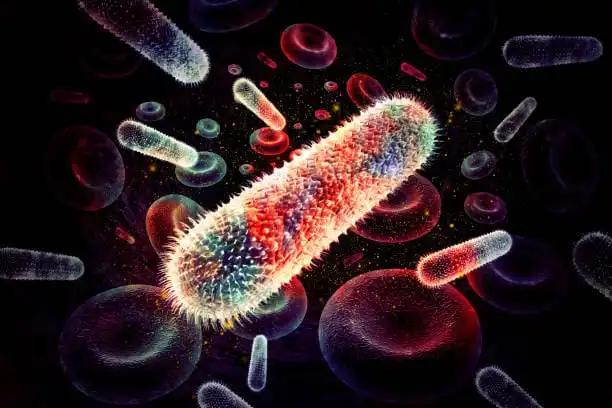KEY TAKEAWAYS
- The study was a phase 1b/2 single-center clinical trial of autologous POC anti-BCMA CAR T-cell therapy in patients with R/R MM.
- The study’s primary aim was to evaluate the safety and overall response rate of POC anti-BCMA CAR T-cell therapy in patients with R/R MM.
- Patients with R/R MM underwent a single peripheral blood leukapheresis, and their T-cells were isolated, activated, and transduced with a retroviral vector.
- The study showed that POC anti-BCMA CAR T-cell therapy was well tolerated and resulted in a high response rate.
- The study demonstrated that POC anti-BCMA CAR T-cell therapy provided excellent efficacy and safety in high-risk MM patients who were primarily ineligible for enrollment in pivotal trials.
Patients with relapsed/refractory multiple myeloma (R/R MM) exhibited excellent efficacy and safety with anti-otherCMA chimeric antigen receptor (CAR) T-cell therapy. Point-of-care (POC) CAR manufacturing eliminates the need for cell cryopreservation and shipment, expediting the manufacturing process and decreasing the need for bridging therapy.
To report the results of a phase 1b/2 single-center clinical trial of autologous POC anti-BCMA CAR T-cell therapy in patients with R/R multiple myeloma who have received at least three prior treatments (NCT05243212). Patients with R/R MM received a single peripheral blood leukapheresis. T-cells were isolated, activated, and transduced with a retroviral vector encoding the anti-BCMA CAR (based on 11D5-3 ScFv, CD28 cost simulator domain, and CD3- signaling domain). Inpatient lymphodepletion conditioning consisted of fludarabine 30 mg/m2 and cyclophosphamide 300 mg/m2 administered over three days (days 4 to 2), followed by infusion of 6106/kg (dose level I [n=3])or 9106/kg (dose level II [n=29]) CAR T-cells. The primary endpoints were the safety and overall response rate per International Myeloma Working Group criteria. The secondary endpoints were progression-free survival and overall survival. The last follow-up occurred in February 2023.
After leukapheresis, all 32 enrolled patients (median age 60, IQR 54-67) received CAR T-cell infusion in a median of 11 days (IQR 11-11). Only two patients were given bridge chemotherapy. The median number of prior therapies was four (IQR: 3-5), and 59% and 34% of patients, respectively, were penta- and quad-refractory. All patients were resistant to proteasome inhibitors and IMiD agents, 31 (97%) were resistant to daratumumab, and 7 (22%) had prior exposure to BCMA-targeted therapy (belantamab mafodotin, n=5 [16%]; talqeutamab, n=2 [6%]). 10 (34%) patients had high-risk cytogenetics, 7 (22%) had double-hit myeloma, 11 (37%) had bone-marrow plasma cell percentage of 50%, and 17 (57%) had extramedullary involvement at enrollment.
In the KarMMa (NEJM, 2021) and CARTITUDE-1 (Lancet, 2021) studies, only 17 (53%) and 2 (16%) patients were eligible to enroll. In all patients, CAR T-cell therapy was well tolerated. Only one patient (3%) developed cytokine release syndrome of grade 3. The syndrome of neurotoxicity associated with immune effector cells was not observed. Neutropenia and thrombocytopenia of grades 3-4 were observed in 31 (97%) and 16 (50%) patients, respectively. Fourteen patients (44%) had anemia requiring transfusion. Beyond day 60, grade 3-4 neutropenia, thrombocytopenia, and anemia were present in 3 (9%) patients, 11 (34%) patients, and 12 (38%) patients, respectively. No bleeding events or fatalities related to cellular therapy were observed. The median duration of follow-up was 3.9 months (IQR: 2.6 to 7.3). The Best Overall (PR at least) Response Rate was 59% (VGPR at 40%). The median response time was 31 days (95% CI: 26-33). The estimated 6-month OS, PFS, and duration of response were 91% (95% CI: 75-100), 48% (95% CI: 33-72), and 63% (95% CI: 41-97), respectively.
Patients with prior exposure to BCMA-targeted therapies had a shorter PFS (HR = 3.40 [95% CI = 1.20 to 9.70]; P = 0.03). POC anti-BCMA CAR T-cells induced high response rates and an outstanding safety profile in high-risk multiple myeloma (MM) patients who were primarily ineligible for enrollment in the pivotal trials—in the majority of patients, the rapid CAR-T production time eliminated the need for bridging therapy. Prior exposure to BCMA-targeted treatments is associated with poor PFS, so these therapies should be carefully considered when CAR T-cell therapy is planned.
Clinical Trial: https://classic.clinicaltrials.gov/ct2/show/NCT05243212
Hila Magen, Shalev Fried, Orit Itzhaki, Noga Shem-Tov, Ivetta Danylesko, Ronit Yerushalmi, Roni Shouval, Ronit Marcus, Lee Nevo, Ronnie Shapira-Frommer, Arnon Nagler, Avichai Shimoni, Eden Shkury, Avigdor Abraham/POINT-OF-CARE ANTI-BCMA CAR T-CELL THERAPY INDUCES ENCOURAGING RESPONSE RATES IN HIGH-RISK RELAPSE/REFRACTORY MULTIPLE MYELOMA/Inc, M. G. (n.d.). POINT-OF-CARE ANTI-BCMA CAR T-CELL THERAPY INDUCES ENCOURAGING… by Hila Magen. Library.ehaweb.org. Retrieved July 14, 2023, from https://library.ehaweb.org/eha/2023/eha2023-congress/386718/hila.magen.point-of-care.anti-bcma.car.t-cell.therapy.induces.encouraging.html?f=menu%3D16%2Abrowseby%3D8%2Asortby%3D2%2Ace_id%3D2489%2Aot_id%3D27922%2Atrend%3D4016%2Amarker%3D4178.



